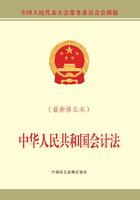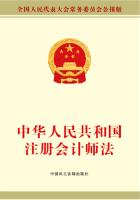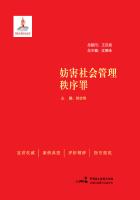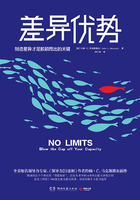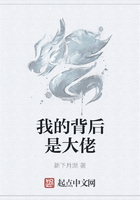Ath. According to my view, any one who would be good at anythingmust practise that thing from his youth upwards, both in sport andearnest, in its several branches: for example, he who is to be agood builder, should play at building children"s houses; he who isto be a good husbandman, at tilling the ground; and those who have thecare of their education should provide them when young with mimictools. They should learn beforehand the knowledge which they willafterwards require for their art. For example, the future carpentershould learn to measure or apply the line in play; and the futurewarrior should learn riding, or some other exercise, for amusement,and the teacher should endeavour to direct the children"s inclinationsand pleasures, by the help of amusements, to their final aim inlife. The most important part of education is right training in thenursery. The soul of the child in his play should be guided to thelove of that sort of excellence in which when he grows up to manhoodhe will have to be perfected. Do you agree with me thus far?
Cle. Certainly.
Ath. Then let us not leave the meaning of education ambiguous orill-defined. At present, when we speak in terms of praise or blameabout the bringing-up of each person, we call one man educated andanother uneducated, although the uneducated man may be sometimesvery well educated for the calling of a retail trader, or of a captainof a ship, and the like. For we are not speaking of education inthis narrower sense, but of that other education in virtue fromyouth upwards, which makes a man eagerly pursue the ideal perfectionof citizenship, and teaches him how rightly to rule and how to obey.
This is the only education which, upon our view, deserves the name;that other sort of training, which aims at the acquisition of wealthor bodily strength, or mere cleverness apart from intelligence andjustice, is mean and illiberal, and is not worthy to be callededucation at all. But let us not quarrel with one another about aword, provided that the proposition which has just been granted holdgood: to wit, that those who are rightly educated generally becomegood men. Neither must we cast a slight upon education, which is thefirst and fairest thing that the best of men can ever have, and which,though liable to take a wrong direction, is capable of reformation.
And this work of reformation is the great business of every manwhile he lives.
Cle. Very true; and we entirely agree with you.
Ath. And we agreed before that they are good men who are able torule themselves, and bad men who are not.
Cle. You are quite right.
Ath. Let me now proceed, if I can, to clear up the subject alittle further by an illustration which I will offer you.
Cle. Proceed.
Ath. Do we not consider each of ourselves to be one?
Cle. We do.
Ath. And each one of us has in his bosom two counsellors, bothfoolish and also antagonistic; of which we call the one pleasure,and the other pain.
Cle. Exactly.
Ath. Also there are opinions about the future, which have thegeneral name of expectations; and the specific name of fear, whenthe expectation is of pain; and of hope, when of pleasure; andfurther, there is reflection about the good or evil of them, and this,when embodied in a decree by the State, is called Law.
Cle. I am hardly able to follow you; proceed, however, as if I were.
Meg. I am in the like case.
Ath. Let us look at the matter thus: May we not conceive each ofus living beings to be a puppet of the Gods, either their playthingonly, or created with a purpose-which of the two we cannot certainlyknow? But we do know, that these affections in us are like cords andstrings, which pull us different and opposite ways, and to oppositeactions; and herein lies the difference between virtue and vice.
According to the argument there is one among these cords which everyman ought to grasp and never let go, but to pull with it against allthe rest; and this is the sacred and golden cord of reason, calledby us the common law of the State; there are others which are hard andof iron, but this one is soft because golden; and there are severalother kinds. Now we ought always to cooperate with the lead of thebest, which is law. For inasmuch as reason is beautiful and gentle,and not violent, her rule must needs have ministers in order to helpthe golden principle in vanquishing the other principles. And thus themoral of the tale about our being puppets will not have been lost, andthe meaning of the expression "superior or inferior to a man"s self"will become clearer; and the individual, attaining to right reasonin this matter of pulling the strings of the puppet, should liveaccording to its rule; while the city, receiving the same from somegod or from one who has knowledge of these things, should embody it ina law, to be her guide in her dealings with herself and with otherstates. In this way virtue and vice will be more clearly distinguishedby us. And when they have become clearer, education and otherinstitutions will in like manner become clearer; and in particularthat question of convivial entertainment, which may seem, perhaps,to have been a very trifling matter, and to have taken a great manymore words than were necessary.
Cle. Perhaps, however, the theme may turn out not to be unworthyof the length of discourse.
Ath. Very good; let us proceed with any enquiry which really bearson our present object.
Cle. Proceed.
Ath. Suppose that we give this puppet of ours drink-what will be theeffect on him?
Cle. Having what in view do you ask that question?
Ath. Nothing as yet; but I ask generally, when the puppet is broughtto the drink, what sort of result is likely to follow. I willendeavour to explain my meaning more clearly: what I am now askingis this-Does the drinking of wine heighten and increase pleasuresand pains, and passions and loves?
Cle. Very greatly.
Ath. And are perception and memory, and opinion and prudence,heightened and increased? Do not these qualities entirely desert a manif he becomes saturated with drink?
Cle. Yes, they entirely desert him.
Ath. Does he not return to the state of soul in which he was whena young child?
Cle. He does.
Ath. Then at that time he will have the least control over himself?
Cle. The least.

